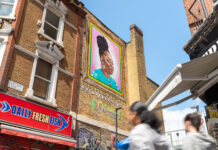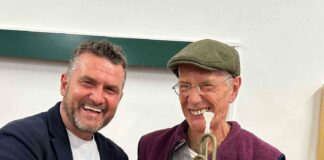Rising film producer Yaw Basoah is a South Londoner with long-term memories of Brixton. Simone Richardson spoke to him about films, art and the importance of life outside work
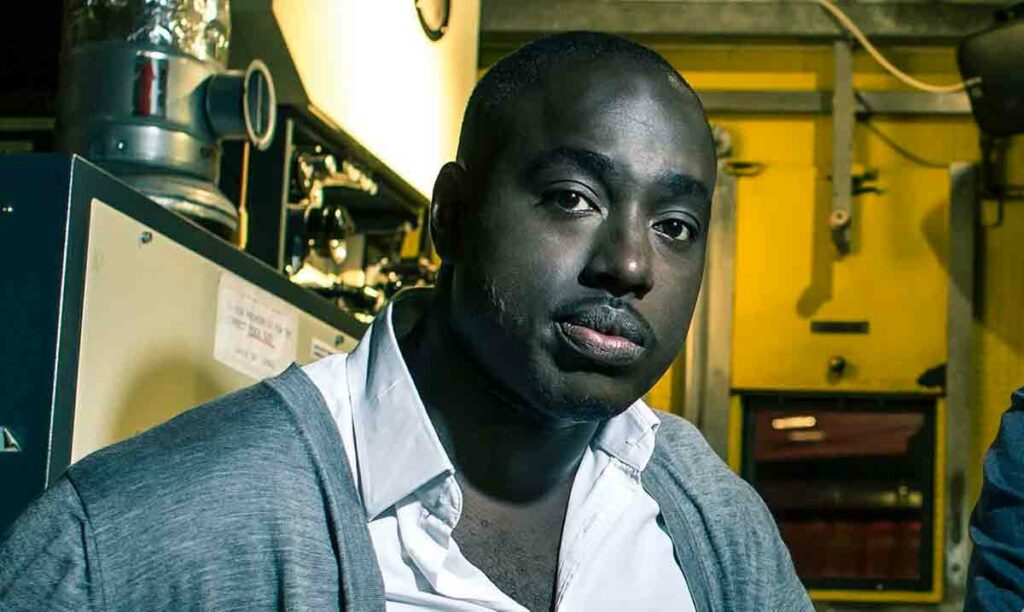
Yaw Basoah’s parents are from the village of Besorol in the Ashanti region of Ghana, but he grew up in South London.
“They moved over in the 60s and 70s. I was born in Saint Thomas’ Hospital and have slowly worked my way down the A23 from our (now gone) estate in Lambeth North to Streatham, with a few stops in between,” says Yaw.
“Bar my time at York University, I have always lived in Lambeth, and always not that far from the A23!’’
He was recently recognised – and not for the first time – as a film producer to watch when he was selected from hundreds of candidates to be a Film London “Lodestar” for 2021.
One of his latest projects is Zero, now in post-production. He met its director and writer Faye Gilbert in 2014 on the Guiding Lights scheme funded by ScreenSkills.
It is BAFTA-nominated Gilbert’s first full length feature and was commissioned through Film London’s Microwave Second Slate scheme which works in partnership with BBC Films and the British Film Institute (BFI).
The thriller explores the role that female “purity” plays in patriarchal systems. Gilbert has created a deconstructed world, removed of religion, that gives boys ownership of and responsibility for girls’ sexuality.
Zero is set in a dystopian near future where adults have fled. The Gateway offers the only chance of survival for teenage siblings Zero and Serger and their younger sister Wake – who they are determined to save from the violence of The City. When Zero’s life is threatened she flees, taking Wake with her. Serger finds them, but when he does each must face a choice: only one can be saved.
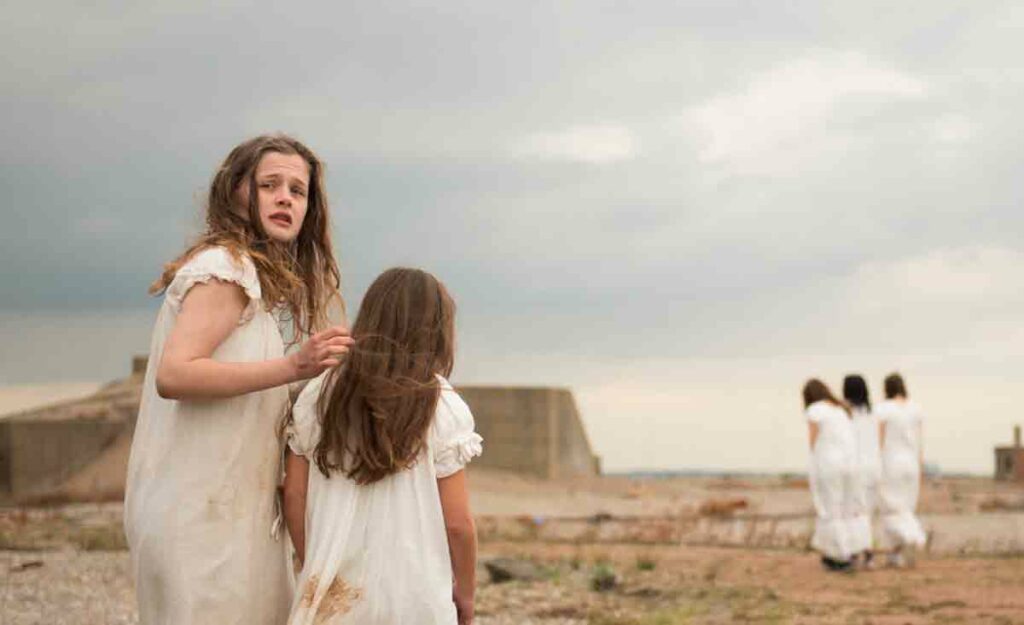
As well as Zero, Yaw is also working on other projects, including Free, a crime thriller written and directed by David Alexander, recipient of an artist award from the 46664 Nelson Mandela Foundation.
Another project is Foresight, a TV sci-fi mini-series. Its first episode, Digging, was largely shot in the Rosendale allotments – a lesser known local gem.
Yaw – who switched from accountancy to film-making – says he has always envisaged building a company, rather than going from film to film as a freelance producer.
“Most important for me has always been putting distinctive, under-represented voices and stories at the centre of our work,” he says, “producing projects that inform, inspire and entertain.”
“I didn’’t go to film school, so I thought that it would take me three phases to learn about the process of filmmaking, the industry, and then running a film business.
“So, in the first phase, I made shorts to learn about the process of making a film and to build relationships with collaborators and the institutions and get some industry recognition for the films themselves.
“The second phase was about being self-sufficient, learning about how to lead and building a slate.”
Yaw says he was fortunate to be named a Screen Star of Tomorrow in this period, complete his MBA, and be part of an “incredible cohort” on Film London’s Breaking the Glass Ceiling scheme.
He also received a BFI Vision Award of £100,000 both to start the building blocks of his production company Dark Pictures, and to build his slate across film, television and visual art.
“Now going into the third phase, I am finalising an inward investment to be able to expand Dark Pictures, beginning Zero’s exhibition journey, and moving some of my bigger projects into production”
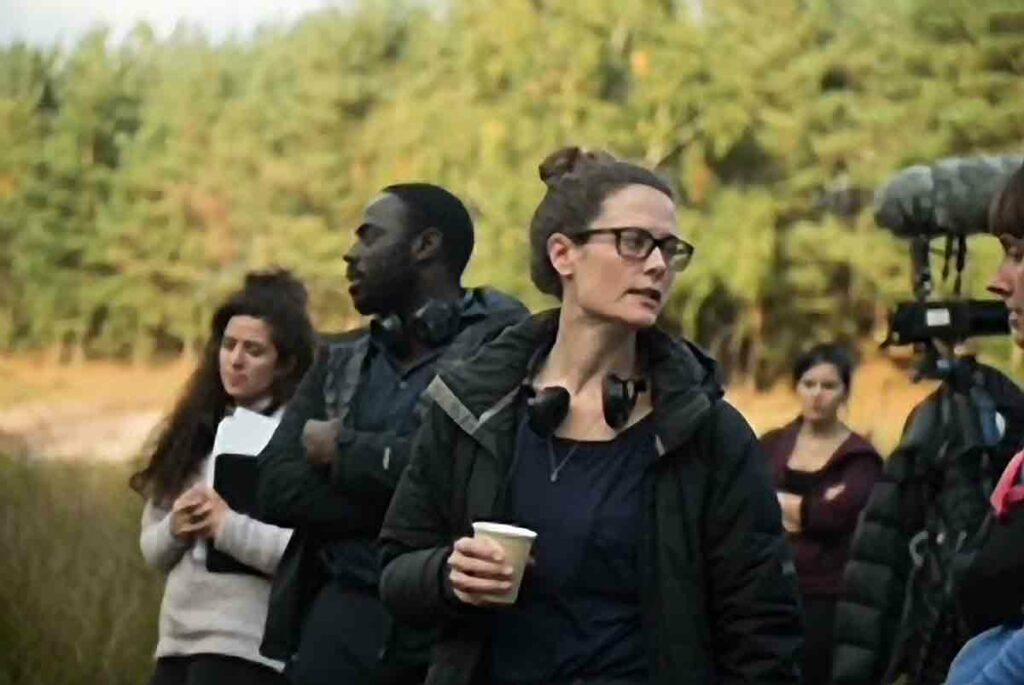
Yaw came to films relatively late in life.
“What I enjoyed most at school was playing sport and making lifelong friends,” he recalls.
“I excelled at rugby and football, in particular, and I captained most sides I represented inside and outside school.
“I also enjoyed really academic work, particularly history and politics.
“That inevitably led me to economics and finance, which I studied at York University.
“It wasn’t until university that I really started to appreciate the full spectrum of films,” Yaw says.
He enjoyed being introduced to films from many different genres by a close friend.
Yaw also loves galleries and museums, listing some of his particular favourites as the V&A, both London Tates, the Photographers’ Gallery – and Clapham’s Studio Voltaire.
Another creative who combines film and the visual arts is Oscar and Turner Prize winner Sir Steve McQueen. He is also mentoring Yaw.
“I am extremely grateful to Steve for agreeing to be my mentor,” says Yaw.
“He has been very generous with time and advice, especially in a period of that has been particularly busy for him – his incredible exhibitions at both the Tate Modern and Tate Britain, and the small matter of Small Axe… and, of course, the pandemic!
“It’s been very useful to get his steer on my slate – film, television, visual art, etc., and on trying to make work that is both distinctive and unflinching.
“But I think just as important have been chats about life in general and perspective, the importance of life outside the work – family, friends, interests – the good stuff!”
Through the lockdown Yaw survived with family, wife, children and close friends, dividing the time between “playing with the kids, working and having a period of time during the day to just rest, zone out/stay safe”.
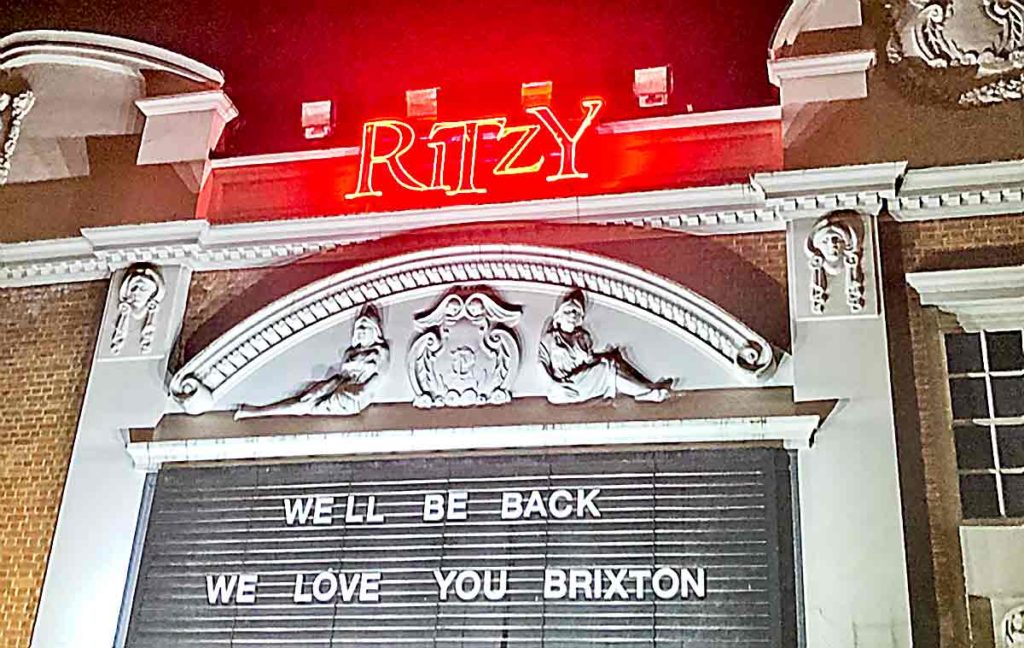
Brixton has also in many ways played an important role in his life, says Yaw.
“Brixton continues to evolve, in some very obvious ways it’s a very different place to the area I knew as a child, yet in pockets, it remains exactly the same.
“The main thing I love about Brixton is the memories of every phase of my life whenever I’m on the high street.
“One constant since my teenage years, however, has been The Ritzy – a place I watched every type of film and, hopefully soon, one of my own.”



